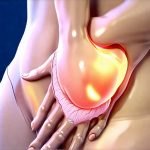Interstitial Cystitis (IC) – often referred to as painful bladder syndrome – can profoundly disrupt daily life, extending far beyond just pelvic pain. A particularly frustrating aspect for many sufferers is the nighttime urgency, that relentless feeling of needing to rush to the bathroom multiple times each night, leading to broken sleep and a cascade of related problems like fatigue, brain fog, and diminished quality of life. This isn’t merely an inconvenience; it’s a symptom rooted in complex physiological processes that demand understanding and proactive management. The cycle of urgency-sleep disruption can become deeply ingrained, creating significant emotional and physical strain.
The impact on sleep is particularly insidious. Consistent nighttime awakenings prevent the body from reaching restorative stages of sleep crucial for healing, immune function, and cognitive performance. This often leads to a vicious loop where fatigue exacerbates IC symptoms, increasing pain levels and further disrupting sleep. Many individuals find themselves living in constant anticipation of needing to void, creating anxiety that compounds the problem. Successfully navigating nighttime urgency requires a multifaceted approach addressing both the underlying bladder condition and the behavioral patterns surrounding it. This article will delve into strategies for managing these challenges and reclaiming restful nights.
Understanding the Nighttime Urgency Cycle
The experience of nighttime urgency in IC isn’t simply about having a “sensitive” bladder; it’s tied to several interconnected factors. One key element is reduced functional bladder capacity – meaning the bladder fills more quickly, even with relatively small volumes of urine. This can be due to inflammation and changes in the bladder lining characteristic of IC. Furthermore, many individuals with IC experience increased sensitivity to stretching sensations within the bladder, leading to a perceived urgency that doesn’t necessarily correlate with how full their bladder actually is.
Beyond the physiological aspects, behavioral patterns play a significant role. Many people restrict fluids before bed, believing it will reduce nighttime trips to the bathroom. While seemingly logical, this can paradoxically concentrate urine, increasing irritation and potentially worsening symptoms. Similarly, consistently rushing to the bathroom at the first sign of urgency reinforces the brain’s association between bladder sensations and immediate action, strengthening the urge pathway. Finally, anxiety surrounding IC itself can heighten awareness of bodily sensations, making individuals more attuned to even minor bladder signals and amplifying feelings of urgency. Learning how to talk about these conditions can help reduce anxiety.
The interplay of these factors – reduced bladder capacity, increased sensitivity, behavioral patterns, and psychological stress – creates a cycle that’s difficult to break without a comprehensive management strategy. It’s important to remember this isn’t about “fixing” the IC entirely (though symptom management can significantly improve quality of life), but rather about disrupting the cycle that perpetuates nighttime urgency and sleep loss.
Practical Strategies for Nighttime Management
Addressing nighttime urgency requires a layered approach encompassing both bladder-focused techniques and lifestyle adjustments to promote better sleep. A cornerstone of this strategy is timed voiding. Instead of responding immediately to every urge, establish a regular schedule for emptying your bladder throughout the day and before bed. This helps train the bladder to hold more urine and reduces the frequency of spontaneous urges. Avoid drastically restricting fluids; instead, distribute fluid intake evenly throughout the day, with slightly less in the evening hours – but never deprive yourself of necessary hydration.
Another effective technique is pelvic floor muscle training (PFMT), often guided by a physical therapist specializing in pelvic health. Strengthening these muscles can improve bladder control and reduce urgency. Alongside PFMT, consider practicing mindfulness or relaxation techniques like deep breathing exercises before bed to calm the nervous system and reduce anxiety surrounding IC symptoms. Creating a relaxing bedtime routine – a warm bath, gentle stretching, reading a book – signals your body it’s time to rest and prepares you for sleep. Finally, ensure your bedroom environment is conducive to sleep: dark, quiet, and cool. Those struggling with frequent urination may also experience nighttime urgency as a result of other conditions.
Addressing Bladder Irritants
One of the first steps in managing IC symptoms involves identifying and eliminating potential bladder irritants from your diet. These vary considerably between individuals, making it essential to experiment and track what triggers your symptoms. Common culprits include:
- Caffeine: A well-known diuretic that can stimulate the bladder.
- Alcohol: Similar to caffeine, alcohol increases urine production and can irritate the bladder lining.
- Acidic foods & drinks: Citrus fruits and juices, tomatoes, vinegar, carbonated beverages can all exacerbate IC symptoms in some individuals.
- Artificial sweeteners: Many artificial sweeteners have been linked to increased bladder sensitivity.
- Spicy foods: Capsaicin, found in chili peppers and other spicy foods, can irritate the bladder.
Keeping a detailed food diary alongside symptom tracking can help pinpoint specific triggers. Eliminating these irritants – even temporarily – can significantly reduce urgency and frequency. Remember to reintroduce foods one at a time to accurately identify which ones are problematic for you. It’s important to note that dietary changes alone may not resolve nighttime urgency, but they’re an essential component of a comprehensive management plan.
Optimizing Bedtime Routine & Sleep Hygiene
Poor sleep hygiene can worsen IC symptoms and amplify the experience of nighttime urgency. Establishing a consistent bedtime routine is paramount for signaling your body it’s time to rest. This routine should ideally begin at least an hour before bed and involve relaxing activities that don’t stimulate the brain – such as reading, taking a warm bath (avoiding harsh soaps), or listening to calming music.
Avoid screen time (phones, tablets, computers) for at least 30 minutes before bed, as the blue light emitted from these devices can interfere with melatonin production, making it harder to fall asleep. Ensure your bedroom is dark, quiet, and cool – optimal conditions for sleep. Consider using blackout curtains, earplugs, or a white noise machine if necessary. Regular exercise during the day (but not too close to bedtime) can also promote better sleep; however, avoid strenuous activity right before bed.
Managing Anxiety & The Urge-Void Cycle
The psychological component of IC and nighttime urgency shouldn’t be underestimated. Anxiety surrounding symptoms can create a self-perpetuating cycle where anticipation of needing to void intensifies the sensation, leading to more frequent bathroom trips. Addressing this anxiety requires mindful awareness techniques and potentially professional support.
Cognitive Behavioral Therapy (CBT) specifically tailored for IC can be incredibly helpful in breaking this cycle. CBT helps individuals identify negative thought patterns related to their condition and develop coping strategies for managing anxiety and stress. Mindfulness meditation, focusing on the present moment without judgment, can also reduce anxiety and promote a sense of calm. If anxiety is overwhelming or interfering with daily life, consider seeking support from a therapist specializing in chronic pain management or pelvic health. Remember that you are not alone, and seeking help is a sign of strength, not weakness. Understanding constant recurrence can also reduce anxiety related to urinary issues. Many people find it helpful to learn how to sleep better while experiencing these symptoms as well.





















